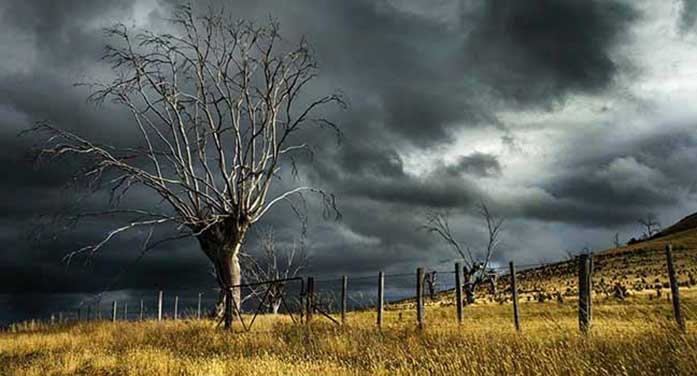 Albertans can be forgiven for feeling a little woozy this holiday season. Eighteen months of economic turmoil have taken their toll on the economy — and more bad news is around the corner.
Albertans can be forgiven for feeling a little woozy this holiday season. Eighteen months of economic turmoil have taken their toll on the economy — and more bad news is around the corner.
The perfect storm about to hit Alberta could make the past year feel like the good old days.
Strike one is the continuing collapse in oil prices. The benchmark price of West Texas Intermediate crude has fallen from over $100 a barrel in July 2014 to $34 a barrel. Goldman Sachs, one of the world’s leading investment banks, has gone from a 2009 prediction of $200 oil to now forecasting $20 per barrel.
When analysts as shrewd as Goldman Sachs can’t predict the price of the world’s most important commodity, who is going to put up the billions of dollars in long-term investments needed to build a stable and dependable energy system?
The answer can be found in Calgary’s vacant office towers and the many jobless Albertans. Statistics Canada says Alberta lost 15,000 highly-paid jobs in the last month alone and is down almost 70,000 jobs year over year.
Strike two is the sea change that has resulted from the Paris climate change accord and rising environmental sensibilities. Alberta’s new NDP Premier Rachel Notley has introduced a carbon tax. And newly-elected Prime Minister Justin Trudeau has promised to meet with the provinces soon to hammer out significant carbon reduction targets and strategies.
The future of energy in Canada, then, is greener and far less reliant on fossil fuels. What this means for Alberta is anybody’s guess, but the transition to a greener economy will not be pretty for an industry and a province that bet its future on oil and coal.
The Federal Reserve Bank in the United States delivered the third strike last week. The 25 basis points rise in nominal rates is minor in itself, but it heralds the end of zero interest rate policy. That policy helped keep the global economy from sinking into depression after the 2008 financial crisis.
The U.S. economy is now just strong enough for central bankers to start to reverse course on rates. The Canadian economy is not.
Canada has its own central bank, of course, but eventually it will have no choice but to follow the Fed’s lead and start raising rates. Capital will be more expensive and mortgage payments will ratchet up, putting additional pressure on already-stressed families.
While many of the environmental changes are long overdue, there’s no doubt that the extraordinary volatility in all commodity prices and the commitment to an entirely new energy infrastructure mark the end of an era. The resulting perfect storm will broadside Alberta and could devastate its energy industry.
In order to manage this transition, national governments will have to be much more active in directing the economy. Ultimately, market forces will be displaced from their position directing the global economy.
Paradoxically, it might be just the tonic Canada and Alberta, in particular, need to save the energy industry from complete meltdown.
But Alberta’s importance in the Canadian economy and its present, and future, weakness will necessitate major intervention.
That intervention could take the form of a national energy policy. The new reality might create a national consensus for energy self-sufficiency. Favouring Canadian energy would help displace the millions of barrels of imported oil consumed in Eastern Canada, while guaranteeing Alberta producers a reliable domestic market and global prices.
Undoubtedly this national policy will also set targets for transitioning from oil to more renewable sources of energy. But it would need do so in a way that maximizes the well-being of Canadians and considers the economic reality in all regions of the country.
More than 30 years ago, then-prime minister Pierre Trudeau’s government introduced the National Energy Program. It was designed to protect Canadian consumers from rapidly rising oil prices and limited supplies. Alberta, of course, was violently opposed. Ultimately, oil prices cooled and the Conservative government that replaced Trudeau’s Liberals killed the program.
It would be an irony of galactic proportions if another prime minister named Trudeau implemented a national energy strategy that saved Alberta and its energy industry, while setting Canada on the road to a new era of national unity and prosperity.
Robert McGarvey is an economic historian and former managing director of Merlin Consulting, a London, U.K.-based consulting firm. Robert’s most recent book is Futuromics: A Guide to Thriving in Capitalism’s Third Wave.
Robert is a Troy Media contributor. Why aren’t you?
The views, opinions and positions expressed by columnists and contributors are the author’s alone. They do not inherently or expressly reflect the views, opinions and/or positions of our publication.


